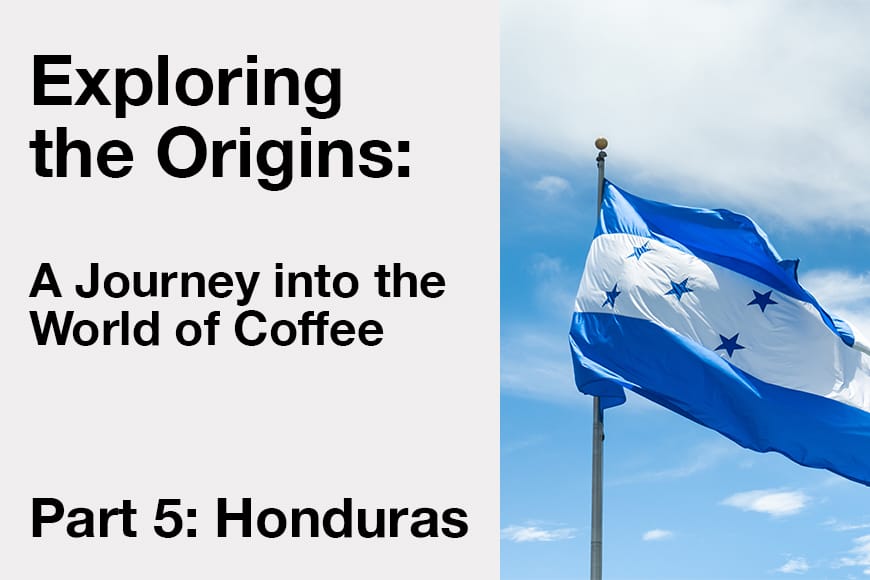Exploring the World of Coffee: Honduras

In the fifth part of our Exploring the Origins series we travel to Honduras, a hidden gem in the world of coffee. With its lush mountains, ideal climate, and commitment to quality, Honduras has emerged as a significant coffee producer. Join us as we uncover the captivating story and flavours of Honduran coffee.
A Rising Coffee Origin
Honduras has steadily gained recognition as a prominent player in the coffee industry. The country’s fertile soils, varied microclimates, and dedication to sustainable practices contribute to the production of high-quality Arabica beans. Honduras has become a go-to origin for specialty coffee. This is due to its rich flavour profiles and commitment to excellence.
Coffee Growing Regions
Honduras boasts several distinct coffee-growing regions, each offering unique characteristics to the beans:
Copán Located in western Honduras, the Copán region is known for its high-altitude coffee farms. The beans grown here are celebrated for their balanced acidity, medium body and complex flavour profiles. They often feature notes of chocolate, citrus, and tropical fruits.
Montecillos Situated in the central part of the country, the Montecillos region produces a diverse range of coffees. The beans from this area often exhibit a bright acidity, floral aromas, and flavour notes of red fruits, caramel, and nuts.
El Paraiso Found in eastern Honduras, El Paraiso is known for its lower-altitude coffee farms. The beans grown here offer a milder acidity, a fuller body, and flavour profiles that include caramel, cocoa, and stone fruits.
Terbodore coffee blends that feature Honduran origin include Mac Espresso and Mocha Java.
Flavour Profiles and Processing Methods
Honduran coffee presents an array of flavour profiles. These are influenced by factors like altitude, soil composition, and processing methods. Arabica beans from Honduras typically offer a medium acidity, a medium to full body, and flavours that range from chocolate and caramel to bright citrus and berry notes. The most common processing methods used in Honduras include washed (wet) processing, which yields clean and vibrant flavours, and natural (dry) processing, which enhances sweetness and brings out fruity and wine-like characteristics.
Sustainable Farming and Social Impact
Honduran coffee farmers are committed to sustainable farming practices and making a positive social impact. Many farms in Honduras focus on organic cultivation, shade-grown coffee, and water conservation methods. Additionally, cooperatives and organisations work to improve living conditions, empower farmers, and promote fair trade practices, ensuring a sustainable future for the coffee industry and benefiting local communities.
Unique Coffee Experiences in Honduras
Visiting the coffee regions of Honduras offers a unique opportunity to witness the coffee production process firsthand. Travelers can immerse themselves in coffee farm tours, participate in harvesting and processing activities, and engage in cupping sessions to deepen their understanding and appreciation of Honduran coffee. The warmth and hospitality of the Honduran people add an extra layer of richness to the experience.
Honduras has emerged as a dynamic coffee origin, offering a wide array of flavours and a commitment to sustainability. With its beautiful landscapes, dedication to quality, and captivating coffee experiences, Honduras is a destination that every coffee enthusiast should explore. Join us in the next installment of our series as we continue our journey through the remarkable origins of this beloved beverage.